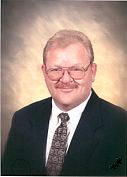“This One Thing I Know, Whereas I was Blind I Now See.”
We have three cures in blindness in the life of our Lord that illustrate the nature of God’s working in answering prayer, and show the exhaustless variety and the omnipotence of His working.
In the first case Christ came incidentally on a blind man at Jerusalem, made clay, softened it by spittle, and smeared it on the eyes and then commanded the man to go and wash in the pool of Siloam. The gracious results lay at the end of his action-washing. So the failure to go and wash would have stopped the process of the cure. No one, not even the blind man, in this instance, requested the cure.
In the second case the parties who in bring the blind man, back their bringing with earnest prayer for a cure; they begged Christ to simply touch him, as though their faith would relieve the burden of a heavy operation. But Jesus took the man by the hand and led him out of the town and away from the people. Alone, and in secret is were this work had to be done. He spat on his eyes and put his hands on them. The response was not complete, a little light and shadows, a partial recovery; the first gracious communication but gave him a disordered vision, the second stroke perfected the cure. The man’s submissive faith in giving himself up to Christ to be led away into privacy and alone, were prominent features of the cure, as also the gradual reception of sight, and the necessity of a second stroke to finish the perfect work.
The third was the case of blind Bartimæus. It was the urgency of faith declaring itself in loud speech, told to be quiet by those who were following Christ, but increased and encouraged by the conflict.
The first case comes on Christ unsuspecting; the second was brought with specific intent to Him; the last goes after Christ with overwhelming need, met by the resistance of the crowd and the seeming lack of concern of Christ. The cure, though, it was without the interference of any agent, no taking by the hand, no gentle or severe touch, no spittle, nor clay, nor washing; only a word and his sight was full and came instantly. Each one had experienced the same divine power, the same blessed results, but with marked variety in the expression of their faith and the mode of their cure. Suppose, at their meeting, the first had set up the details and process for his cure, the spittle, the clay, the washing in Siloam as the only Divine process, as the only genuine credentials of a Divine work, how far from the truth, how narrow and misleading such a standard of decision! It is not the methods, but the results that are the tests of the Divine work.
Each one could say: “This one thing I know, whereas I was blind I now see.” The results were conscious results; that Christ did the work they knew; faith was the instrument, but its exercise different; the method of Christ’s working different; the various steps that brought them to the gracious end on their part and on His part at many points noticeably different.
What are the limitations of prayer? How far do its benefits and possibilities reach? What part of God’s dealing with man, and with man’s world, is untouched by prayer? Do the possibilities of prayer cover all temporal and spiritual good? The answers to these questions are beyond common thought or experienced importance. The answer will gauge the effort and results of our praying. The answer will greatly enhance the value of prayer, or will greatly depress prayer. The answers to these important questions are fully covered by Paul’s words on prayer: “Be careful for nothing, but in everything, by prayer and supplication, with thanksgiving, let your requests be made known unto God” (Phil. 4:6).











No comments:
Post a Comment